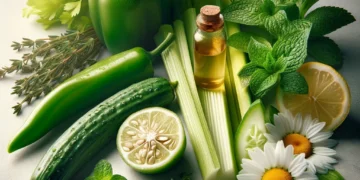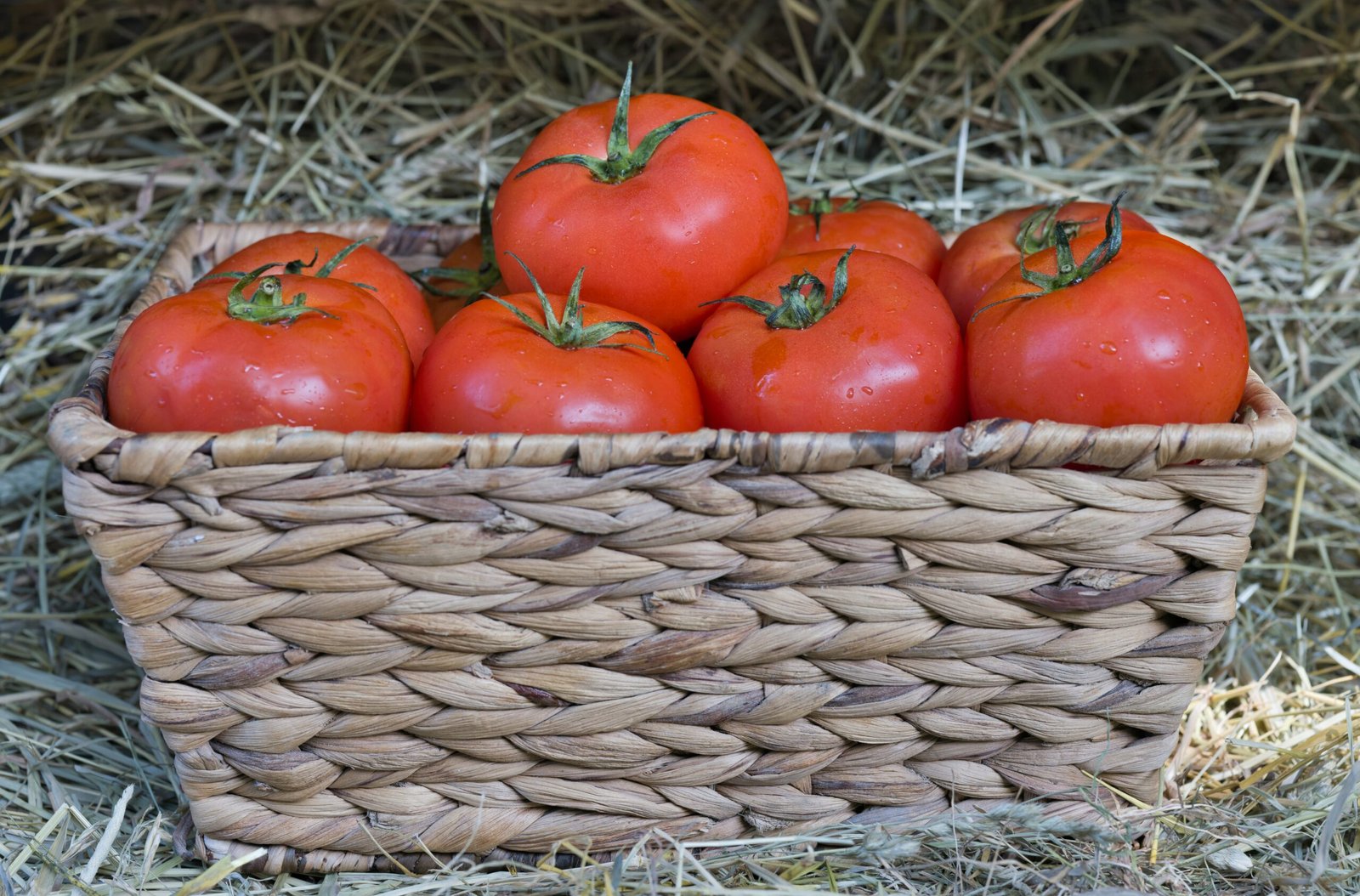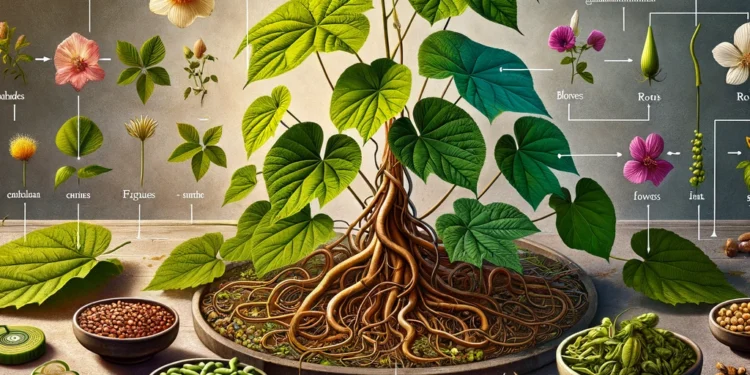The Amazing Health Benefits Of Kudzu! Find Out More
Introduction
Welcome to our complete guide on Kudzu, the powerful antioxidant. In this article, we will explore the chemical structure, properties, and role of Kudzu, as well as its history, origins, and traditional uses in medicine. We will also delve into the contemporary research that supports these traditional uses and discuss the health benefits that have been discovered in recent decades. Additionally, we will explore the natural sources of it, its absorption and bioavailability, recommended intakes, and potential side effects and safety considerations. Let’s dive in!
What is Kudzu?
Kudzu, also known as a powerful  antioxidant, is a natural compound that has gained attention for its potential health benefits. It is a plant-based substance that has been used in traditional medicine for centuries. Let’s explore its chemical structure and properties.
antioxidant, is a natural compound that has gained attention for its potential health benefits. It is a plant-based substance that has been used in traditional medicine for centuries. Let’s explore its chemical structure and properties.
Chemical Structure and Properties of Kudzu
Kudzu belongs to a class of compounds known as flavonoids. Flavonoids are a diverse group of plant-based compounds that are known for their antioxidant properties. Kudzu specifically belongs to a subclass of flavonoids called isoflavones. Its chemical structure consists of a three-ring structure with various side chains.
Role and History
Kudzu was first isolated in 1910 by a team of researchers who were studying plant compounds. Its name derives from the Japanese word “kuzu,” which means vine. This is fitting, as kudzu is a climbing vine that is native to parts of Asia. In traditional medicine, kudzu has been used for its various health benefits.
Traditional Uses Of Kudzu
In traditional medicine, Kudzu has been used for a variety of purposes. It has been traditionally used to promote digestive health, alleviate symptoms of menopause, and support cardiovascular health. Additionally, it has been used as a natural remedy for alcohol cravings and addiction. These traditional uses have been supported by contemporary research.
been used for a variety of purposes. It has been traditionally used to promote digestive health, alleviate symptoms of menopause, and support cardiovascular health. Additionally, it has been used as a natural remedy for alcohol cravings and addiction. These traditional uses have been supported by contemporary research.
Contemporary Research
In recent decades, scientific studies have been conducted to explore the health benefits of Kudzu. Research has shown that it possesses antioxidant and anti-inflammatory properties, which may contribute to its potential health benefits. It has been found to support cardiovascular health, aid in the management of menopausal symptoms, and have potential neuroprotective effects. However, further research is still needed to fully understand the mechanisms and potential applications of kudzu.
Natural Sources Of Kudzu
Kudzu can be found in various natural sources. It is most commonly derived from the root of the Kudzu vine. Additionally, it can be obtained from dietary supplements and extracts. It is important to note that the quality and potency of it can vary depending on the source and preparation method.
Health Benefits of Kudzu
The health benefits of Kudzu are diverse and have been the subject of scientific investigation. Some of the potential benefits include antioxidant and anti-inflammatory effects, cardiovascular support, menopausal symptom relief, and potential neuroprotective effects. However, it is important to note that individual results may vary, and further research is needed to fully understand the extent of these benefits.
diverse and have been the subject of scientific investigation. Some of the potential benefits include antioxidant and anti-inflammatory effects, cardiovascular support, menopausal symptom relief, and potential neuroprotective effects. However, it is important to note that individual results may vary, and further research is needed to fully understand the extent of these benefits.
Absorption and Bioavailability
The absorption and bioavailability of Kudzu can be influenced by various factors. It is a fat-soluble  compound, which means that it is better absorbed when consumed with dietary fat. Additionally, processing and cooking methods can affect the availability of it in food. It is also important to consider potential interactions with other compounds, as they may affect the absorption and bioavailability of Kudzu.
compound, which means that it is better absorbed when consumed with dietary fat. Additionally, processing and cooking methods can affect the availability of it in food. It is also important to consider potential interactions with other compounds, as they may affect the absorption and bioavailability of Kudzu.
Recommended Intakes
Currently, there are no specific dietary guidelines for Kudzu intake. However, it is generally recommended to follow a balanced diet that includes a variety of fruits, vegetables, and whole foods to ensure a sufficient intake of beneficial compounds, including Kudzu. If considering kudzu supplements or extracts, it is advisable to consult with a healthcare professional for personalized guidance.
Potential Side Effects Of Kudzu
Kudzu is generally recognized as safe when consumed in moderate amounts. However, it is important to note that individual sensitivities and allergies may exist. Additionally, it may interact with certain medications, so it is important to consult with a healthcare professional before starting any new supplements or extracts. Excessively high doses of it may pose risks, so it is important to adhere to recommended dosages.


Frequently Asked Questions
1. Can Kudzu be used as a replacement for medical treatment?
While Kudzu has potential health benefits, it should not be used as a replacement for medical treatment. It is important to consult with a healthcare professional for proper diagnosis and treatment of any health condition.
2. Are there any known drug interactions with kudzu?
Kudzu may interact with certain medications, including blood thinners and hormone therapies. It is important to disclose the use of Kudzu supplements or extracts to your healthcare provider to prevent any potential interactions.
3. Can Kudzu be used during pregnancy or breastfeeding?
It is advisable to consult with a healthcare professional before using Kudzu supplements or extracts during pregnancy or breastfeeding. They can provide personalized guidance based on individual circumstances.

References
1. Study on the chemical constituents of Pueraria lobata (Willd.) Ohwi and their antitumor activities. – PubMed (nih.gov)
2. Kudzu Root: Benefits, Side Effects, and More (healthline.com)
3. Kudzu: Uses, Side Effects, Interactions, Dosage, and Warning (webmd.com)
Sources
Kudzu’s History and Origins: https://www.britannica.com/plant/kudzu https://www.fs.fed.us/database/feis/plants/vine/puermont/all.html
Where Kudzu Grows: https://www.invasivespeciesinfo.gov/terrestrial/plants/kudzu https://www.nps.gov/planyourvisit/upload/KUDZU%20BACK.pdf
Traditional Uses of Kudzu: https://www.sciencedirect.com/topics/agricultural-and-biological-sciences/pueraria https://www.ncbi.nlm.nih.gov/pmc/articles/PMC6408293/
Kudzu Plant Biology: https://www.britannica.com/plant/kudzu https://pfaf.org/user/Plant.aspx?LatinName=Pueraria+lobata
Nutrition Facts of Kudzu: https://fdc.nal.usda.gov/fdc-app.html#/food-details/169856/nutrients https://www.ncbi.nlm.nih.gov/pmc/articles/PMC6408293/
Health Benefits of Kudzu: https://www.healthline.com/nutrition/benefits-of-kudzu https://www.ncbi.nlm.nih.gov/pmc/articles/PMC6408293/
Kudzu in Traditional Chinese Medicine: https://tcmwiki.com/wiki/ge-gen https://www.ncbi.nlm.nih.gov/pmc/articles/PMC6408293/
Safety and Side Effects: https://www.webmd.com/vitamins/ai/ingredientmono-758/kudzu https://www.rxlist.com/kudzu/supplements.htm
Where to Find Kudzu: https://www.specialtyproduce.com/produce/Kudzu_Leaves_4173.php https://www.frontiercoop.com/herbs/buy/buy/kudzu
Sustainability Issues: https://www.invasiveplantatlas.org/subject.html?sub=3007 https://www.ecology.com/2011/09/10/kudzu-control/
Disclaimer: This blog post is for informational purposes only and should not be considered medical advice. Please consult with a healthcare professional before making any changes to your diet or lifestyle

















